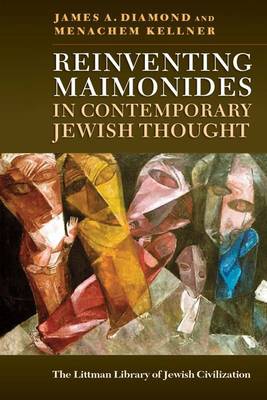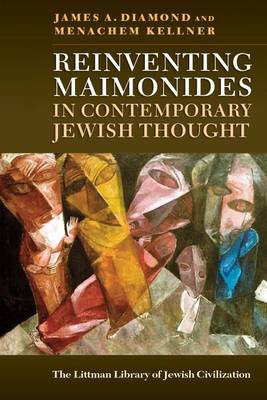
- Afhalen na 1 uur in een winkel met voorraad
- Gratis thuislevering in België vanaf € 30
- Ruim aanbod met 7 miljoen producten
- Afhalen na 1 uur in een winkel met voorraad
- Gratis thuislevering in België vanaf € 30
- Ruim aanbod met 7 miljoen producten
Zoeken
€ 92,45
+ 184 punten
Omschrijving
Every work on Jewish thought and law since the twelfth century bears the imprint of Maimonides. A. N. Whitehead's famous dictum that the entire European philosophical tradition 'consists of a series of footnotes to Plato' could equally characterize Maimonides' place in the Jewish tradition. The critical studies in this volume explore how Orthodox rabbis of different orientations--Shlomo Aviner, Naftali Zvi Yehudah Berlin (Netziv), Kalonymus Kalman Shapira, Joseph Kafih, Abraham Isaac Kook, Aaron Kotler, Joseph Soloveitchik, and Elhanan Wasserman--have read and provided footnotes to Maimonides in the long twentieth century. How well did they really understand Maimonides? And where do their arguments fit in the mainstream debates about him and his works? Each of the seven core chapters examines a particular approach. Some rabbis have tried to liberate themselves from the influence of his ideas. Others have sought to build on those ideas or expand them in ways which Maimonides himself did not pursue, and which he may well not have agreed with. Still others advance patently non-Maimonidean positions, while attributing them to none other than Maimonides. Above all, the essays published here demonstrate that his legacy remains vibrantly alive today.
Specificaties
Betrokkenen
- Auteur(s):
- Uitgeverij:
Inhoud
- Aantal bladzijden:
- 248
- Taal:
- Engels
- Reeks:
Eigenschappen
- Productcode (EAN):
- 9781906764951
- Verschijningsdatum:
- 1/04/2019
- Uitvoering:
- Hardcover
- Formaat:
- Genaaid
- Afmetingen:
- 160 mm x 239 mm
- Gewicht:
- 521 g

Alleen bij Standaard Boekhandel
+ 184 punten op je klantenkaart van Standaard Boekhandel
Beoordelingen
We publiceren alleen reviews die voldoen aan de voorwaarden voor reviews. Bekijk onze voorwaarden voor reviews.








